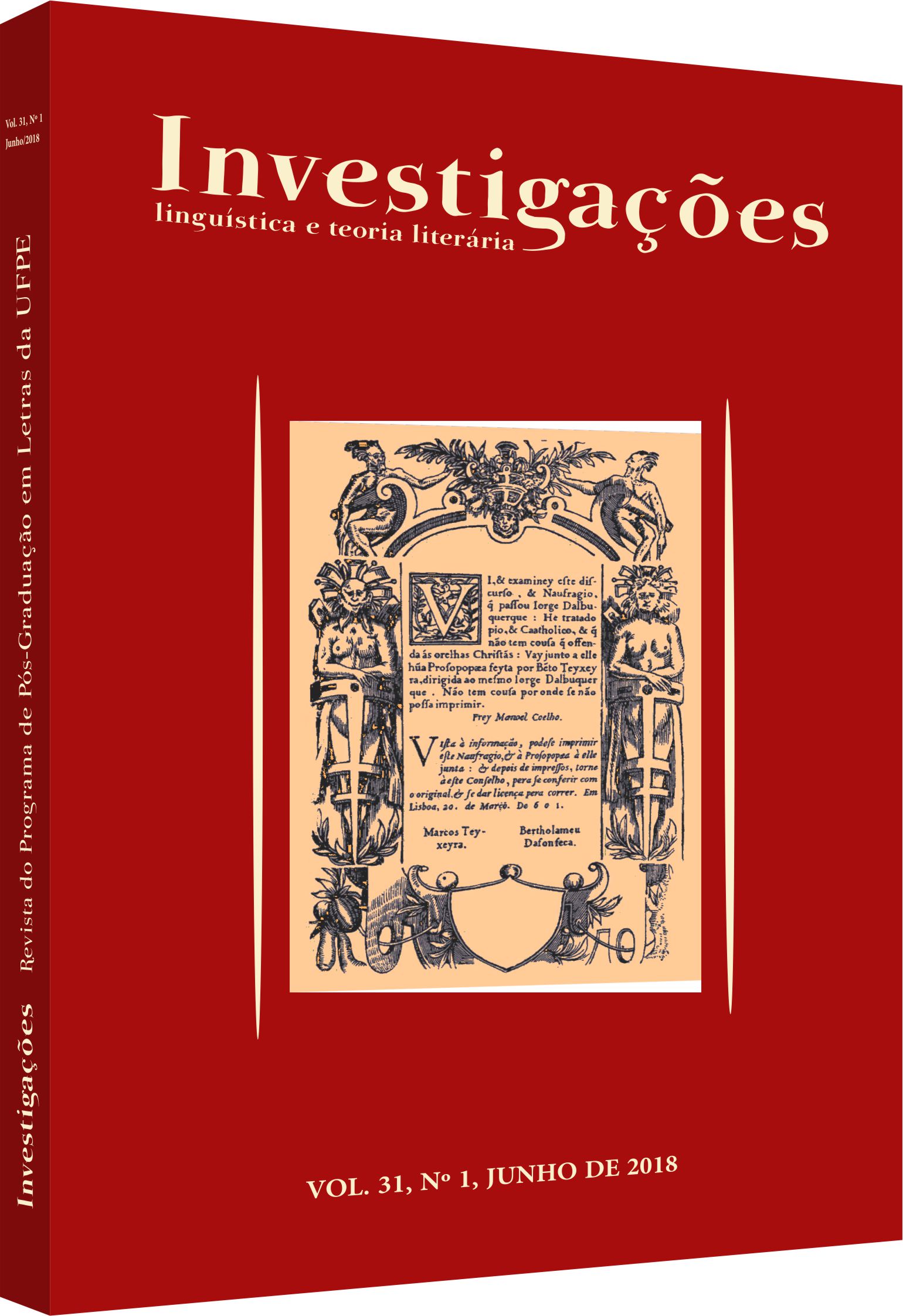Roberto Bolaño e a inflexão do marxismo na crítica sobre a literatura da América Latina do séc. XXI
DOI:
https://doi.org/10.51359/2175-294x.2018.237700Resumo
Esta pesquisa tenta estabelecer um diálogo entre a crítica literária do séc. XXI e o marxismo, por meio da obra crítica ensaística de Roberto Bolaño Entre paréntesis (2011). Nesta publicação, Bolaño discute algumas das vozes narrativas do séc. XX, no viés crítico geopolítico em que se movimentam, canonizadas ou não, definindo, inflexivamente, um passo ao estudo da narrativa não-cânone. Nesse sentido, acredita-se que Bolaño, ao fundamentar a obra contemporânea, na descontinuidade (GONZÁLEZ, 2010), cria uma inflexão crítica que se desprende do marxismo dialético, na aliança entre o real e a ficção, numa narração latino-americana de finais do século passado.Referências
ADORNO, Theodor. Notas de literatura I. Tradução Jorge de Almeida. 2ª edição. São Paulo: Editora 34, 2012.
AUERBACH, Erich. Introdução aos estudos literários. Tradução José Paulo Paes. São Paulo: Cosac Naify, 2015.
BENJAMIN, Walter. Magia e técnica, Arte e política, I. Tradução Sérgio Paulo Rouanet. 8ª edição. São Paulo: Editora Brasiliense, 2012.
BOLAÑO, Roberto. Entre paréntesis. Barcelona: Anagrama, 2004.
______. Nocturno de Chile. Barcelona: Anagrama, 2006.
BOURDIEU, Pierre. A distinção: crítica social do julgamento. Tradução Daniela Kern; Guilherme Teixeira. 2ª edição. Porto Alegre: Zouk, 2015.
______. O Poder Simbólico. Tradução Fernando Tomaz. Rio de Janeiro: Bertrand Brasil, 2010.
BURGOS, Fernando. El Cuento Hispanoamericano en el Siglo XX, I. Madrid: Castalia S.A. 1997.
CHACON, Juan. A função da produção de Roberto Bolaño na canonização de novos modelos para a narrativa hispano-americana no final do séc. XX. 2015. Dissertação (Mestrado em Estudos Literários pelo Programa de Pós Graduação em Letras e Lingüística) – Faculdade de Letras, Universidade Federal de Goiás, Goiânia.
ESPINOSA, Patricia. Territorios en fuga: Estudios críticos sobre la obra de Roberto Bolaño. Andalucía: Editorial Frasis, 2003.
EVEN-ZOHAR, Itamar. Teoría dos Polissistemas. Tradução Luiz Fernando Marozo; Carlos Rizzon et all. Rio Grande do Sul: 2013. Disponível em: < http://www.seer.ufrgs.br/translatio/article/viewFile/42899/27134>. Acesso em 14 jul 2018.
FRIEDMAN, Norman. O Ponto de Vista na Ficção: o Desenvolvimento de um Conceito Crítico. Revista USP. São Paulo, n. 53, 2002.
GONZÁLEZ, Daniuska. La Escritura Bárbara. La Narrativa de Roberto Bolaño. Lima: Fondo Editorial Cultura Peruana, 2010.
HERRALDE, Jorge. Para Roberto Bolaño. Acantilado, 2005. Disponível em: <https://books.google.com.br/books?id=4wzKNUBicegC&pg=PA15&hl=pt-BR&source=gbs_toc_r&cad=3#v=onepage&q&f=falsel>. Acesso em: 20 jul 2018.
HOUVENAGHEL, Eugenia ; LOGIE, Ilse. Alianzas entre historia y ficción: homenaje a Patrick Collard. Ginebra: Droz S. A., 2009.
MANZONI, Celina. Roberto Bolaño: la escritura como tauromaquia. Buenos Aires: Corregidor, 2006.
MARX, Karl. O capital. Tradução Gabriel Deville. 3ª edição. São Paulo: Editora Edipro, 2008.
MENTON, Seymour. Historia Verdadera del Realismo Mágico. México D.F.: Fondo de Cultura Económica, 1998.
SHAW, Donald. La Nueva Narrativa Hispanoamericana. 5. ed. Madrid: Cátedra, 1996.
WILLIAMS, Raymond. Marxismo e Literatura. Rio de Janeiro: Zahar, 1979.
ŽIŽEK, Slavoj. Um mapa da ideologia. Tradução Vera Ribeiro. Rio de Janeiro: Editora Contraponto, 2013.
Downloads
Publicado
Como Citar
Edição
Seção
Licença
Copyright (c) 2018 Juan Castro Chacon

Este trabalho está licenciado sob uma licença Creative Commons Attribution 4.0 International License.
Autores que publicam na Revista Investigações concordam com os seguintes termos:
Autores mantêm os direitos autorais e concedem à revista o direito de primeira publicação, com o trabalho simultaneamente licenciado sob a licença Creative Commons Atribuição 4.0 Internacional (CC BY 4.0) que permite o compartilhamento do trabalho com reconhecimento da autoria e publicação inicial nesta revista.
Autores têm autorização para assumir contratos adicionais separadamente, para distribuição não-exclusiva da versão do trabalho publicada nesta revista (exemplo: depositar em repositório institucional ou publicar como capítulo de livro), com reconhecimento de autoria e publicação inicial nesta revista.
Qualquer usuário tem direito de:
Compartilhar — copiar e redistribuir o material em qualquer suporte ou formato para qualquer fim, mesmo que comercial.
Adaptar — remixar, transformar e criar a partir do material para qualquer fim, mesmo que comercial.
O licenciante não pode revogar estes direitos desde que você respeite os termos da licença.
De acordo com os termos seguintes:
Atribuição — Você deve dar o crédito apropriado, prover um link para a licença e indicar se mudanças foram feitas. Você deve fazê-lo em qualquer circunstância razoável, mas de nenhuma maneira que sugira que o licenciante apoia você ou o seu uso.
Sem restrições adicionais — Você não pode aplicar termos jurídicos ou medidas de caráter tecnológico que restrinjam legalmente outros de fazerem algo que a licença permita.

